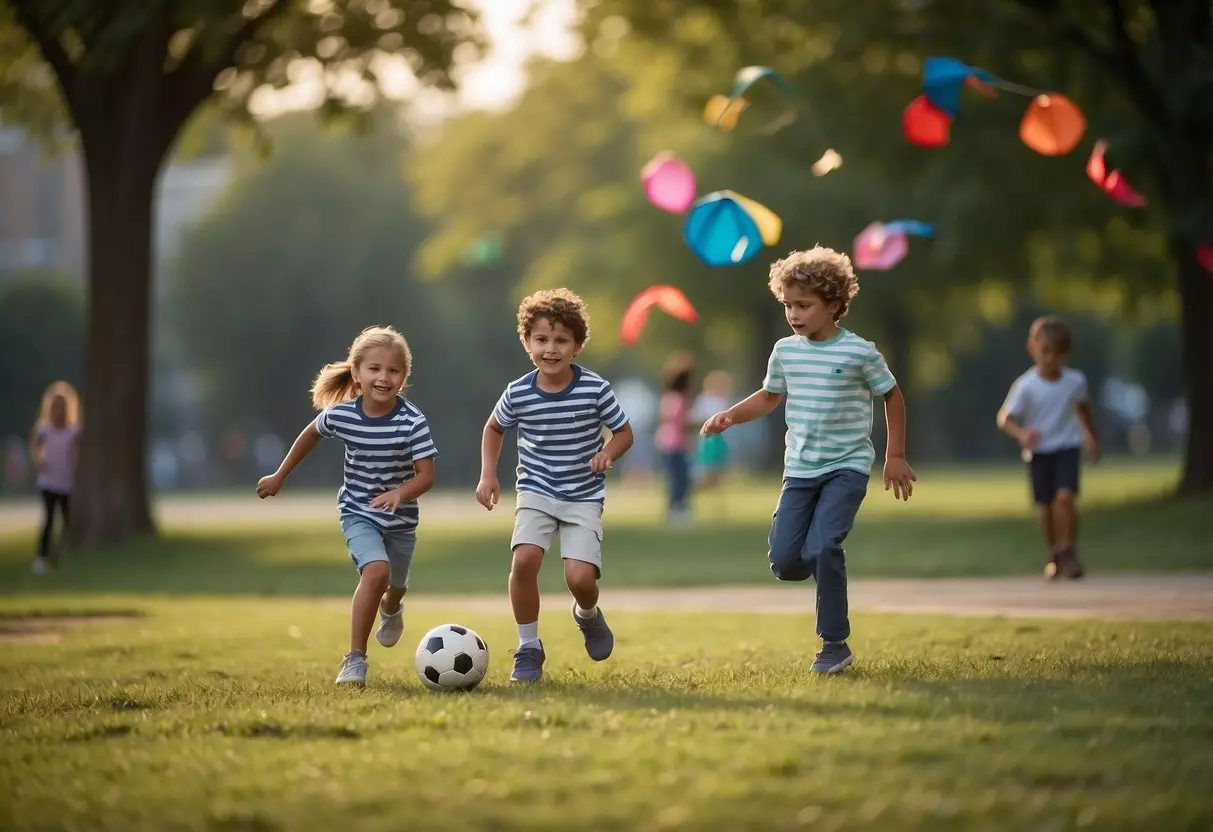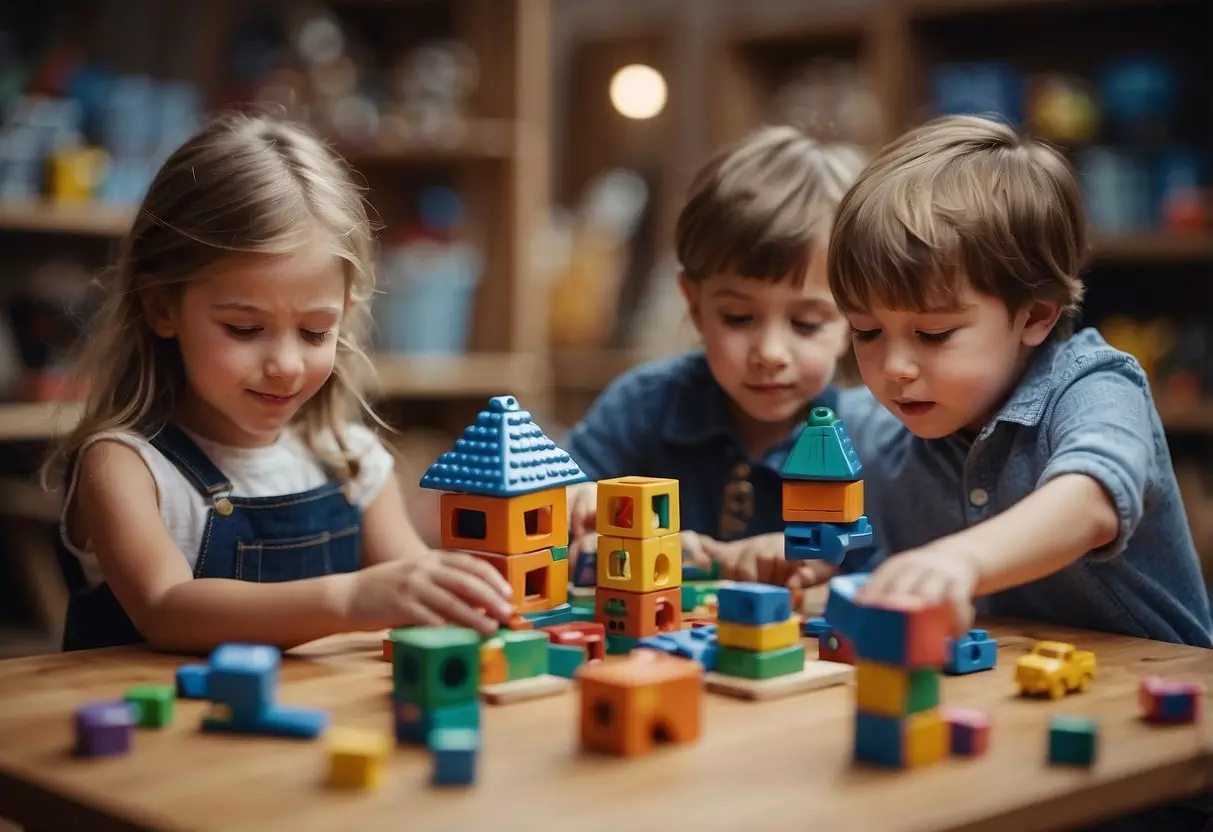Group Activities for Kids: Fun and Educational Ideas to Keep Them Engaged
Engaging in group activities with kids is an excellent way to foster important skills such as teamwork, communication, and problem-solving. When kids work together, they learn about cooperation and develop a sense of community that’s crucial for their social growth. Whether you’re a teacher looking for classroom icebreakers, a parent aiming to keep children entertained during a party, or a coach wanting to build team spirit, there’s a variety of group games and activities designed to suit children’s varied interests and age levels.

From indoor games that encourage creativity to outdoor adventures that get the heart pumping, the options are nearly endless. You’ll find activities that can be tailored to the number of participants, the setting, and the resources available. Interactive games like Hula-Hoop challenges and balloon battles are not only enjoyable but also instrumental in teaching children about strategy and collaboration. If you’re dealing with a smaller group or a more confined space, there are fun games specifically suited for these scenarios too.
Think of group activities for kids as an investment in their emotional and physical well-being. The laughter and joy that come from playing together create lasting memories and build a foundation for healthy relationships. So, whether you’re after a quiet activity to calm the group down or a lively game to burn off energy, there’s something to meet your needs and make your time together both fun and valuable.
Table of Contents
Team Building Activities
Team building activities are vital for nurturing cooperation and communication among children. These games not only entertain but also impart essential life skills in an engaging way.
Trust Walk
A Trust Walk is a game where one child is blindfolded and the other provides verbal directions to navigate a set course. It’s an excellent activity for fostering trust and communication. As you guide your partner, remember that clear, considerate instructions are key to success in this activity.
Human Knot
In the Human Knot game, kids stand in a circle and grab the hands of two people across from them. The goal is to untangle the group without releasing hands, which requires problem-solving, cooperation, and communication. It’s a tactile game that illustrates the importance of working together and the fun in collectively finding a solution.
Hoop Pass
Hoop Pass is a team activity where children must pass a hula hoop around the circle without breaking handhold. It’s a lighter challenge compared to the Human Knot, but it still emphasizes the importance of team building and collective effort. Keep the game fun and encourage every child to participate and contribute their ideas for the success of the team.
Energetic Group Games
Energetic group games are perfect for encouraging physical activity, teamwork, and healthy competition among kids. Here’s a quick guide to a few team games that are sure to get everyone’s heart racing and spirits lifted.
Relay Races
Relay races are a thrilling way to add excitement and a touch of competition to any group event. To set up a relay race, you’ll first need to divide participants into equal teams. You can use a variety of different challenges for each leg of the race, like hopping on one foot, running while balancing an object, or navigating an obstacle course. The key is to pass along a baton or object to the next team member after completing your part. Relay races promote teamwork and speedy running prowess, as each participant rushes to contribute to their team’s success.
Tug-of-War
A classic tug-of-war competition is undeniably exhilarating and a brilliant test of strength and teamwork. You’ll need a sturdy rope and a marker on the ground, such as a flag or tape. Teams line up on either side of the marker and, on your go signal, pull with all their might. It’s a potent demonstration of group solidarity and strategy, as teams must balance their collective strength to outmatch their opponents.
Musical Chairs
Musical chairs is a dynamic and joyful game that mixes quick movement with a keen ear for music. Arrange chairs in a circle, one less than the number of participants, and start playing lively music. As children move around the chairs, they must find a seat as quickly as possible when the music stops. This competitive yet amusing game tests reflexes and agility, and often results in laughter and playful banter amongst the kids as they vie for the limited number of chairs.
Creative and Educational Activities

Engaging in creative and educational activities can greatly benefit a child’s development. These activities are designed to improve skills such as memory and listening, while also enhancing fine motor abilities.
Scavenger Hunts
Scavenger hunts are exceptional for boosting your child’s observational and memory skills. You’ll provide them with clues and objects to find, which foster problem-solving capabilities and encourage them to be active listeners. A scavenger hunt can be themed to integrate educational content, such as natural science or local history, making learning both immersive and exciting.
Crafts Making
Creating crafts is a wonderful way to develop fine motor skills in children. Crafts making involves handling small materials like beads or paper, which improves dexterity. It’s not only about precision but also stimulates creativity and inventiveness. For example, you can organize a paint activity where kids paint and assemble various materials, which helps to enhance cognitive development through color and pattern recognition.
Treasure Hunts
Similar to scavenger hunts, treasure hunts involve searching for specific items, but with the added excitement of discovering a ‘treasure’ at the end. This activity is great for group play, promoting teamwork and communication. It’s also a playful method to teach children about historical explorers or pirates, embedding educational stories within the fun.
Classic Group Activities
Engaging in classic group activities is a wonderful way for kids to develop social skills and experience the joy of teamwork through fun games.
Duck, Duck, Goose
Duck, Duck, Goose is a timeless game that gets you running and giggling. You’ll sit in a circle while one person, the “it,” walks around tapping heads and saying “duck” until they choose to say “goose.” The “goose” then jumps up and chases the “it” around the circle, aiming to tag them before they take their spot in the circle.
Red Rover
Red Rover encourages strategic teamwork and can be quite exhilarating. You and your friends will form two lines, holding hands, as you call someone from the opposing team with the famous line, “Red Rover, Red Rover, send (name) right over!” The person called must run toward your line and attempt to break through the linked hands.
Simon Says
Simon Says is a fun game that sharpens your listening skills and reaction time. It’s all about following instructions, but only when you hear the phrase “Simon says” before the command. If “Simon says” touch your toes, you touch your toes. But if you’re told to jump without the key phrase, don’t jump or you’re out!
These classic games not only foster a sense of togetherness but are also essential in helping children understand the power of listening, cooperation, and gentle competition.
Indoor Group Challenges
Exploring group activities that can be played indoors is a fantastic way to foster teamwork and keep kids engaged. Whether you’re setting up a fun course, strategizing over games, or coordinating in a juggling act, each provides unique benefits like improving hand-eye coordination and problem-solving skills.
Indoor Obstacle Course
An indoor obstacle course is a thrilling challenge that can be tailored to any space. Use items like hula hoops and balloons to create different stations. For instance, you might design a zig-zag pattern with hula hoops that kids must hop through, or set up a balloon-popping station where they have to sit on balloons to pop them, adding a burst of giggles to the mix. Not only is it fun, but it also enhances hand-eye coordination and physical dexterity.
Board Games
Board games are not only entertaining but also educational. They range from classic strategy games to newer, fast-paced options. When picking a game, consider the age and interests of the children. Chess or checkers could be perfect for teaching strategic thinking, while something like Pictionary can keep a larger group engaged as they guess the drawn clues.
Group Juggle
In a Group Juggle, children toss soft balls or balloons to each other in a predefined order, with the aim of keeping as many objects in play as possible. This game requires sharp hand-eye coordination and focus, as each member must remember who to throw to next. It’s not only about physical agility but also about building trust and communication within the group.
Games for Coordination and Cooperation

When it comes to building skills in coordination and cooperation among children, certain games can be particularly effective. These games not only enhance teamwork but also improve both verbal and non-verbal communication skills, as children learn to take turns and work together towards a common goal.
Balloons Line Up
In Balloons Line Up, you’ll need to work together to keep balloons in the air but with a twist. Your team must arrange themselves in a predetermined order without letting the balloons touch the ground. Remember to use non-verbal signals effectively, as this will be key to coordinating movements and ensuring everyone is in sync.
Hot Potato
Grab a small object to act as the ‘potato’ and start the music! Hot Potato is a classic game where you’ll pass the ‘potato’ around the circle while the music plays. When the music stops, the person holding the ‘potato’ is out. This game gets you on your toes, encourages quick reflexes, and necessitates both verbal and non-verbal communication for signaling and ensuring everyone is alert.
Rock, Paper, Scissors
A simple yet profound game of Rock, Paper, Scissors can teach the fundamentals of decision-making and cooperation. Whether played in pairs or in a large group tournament style, this game promotes understanding of strategy and the anticipation of your partner’s moves. It’s a cooperative game that’s all about taking turns and respecting the outcome.
